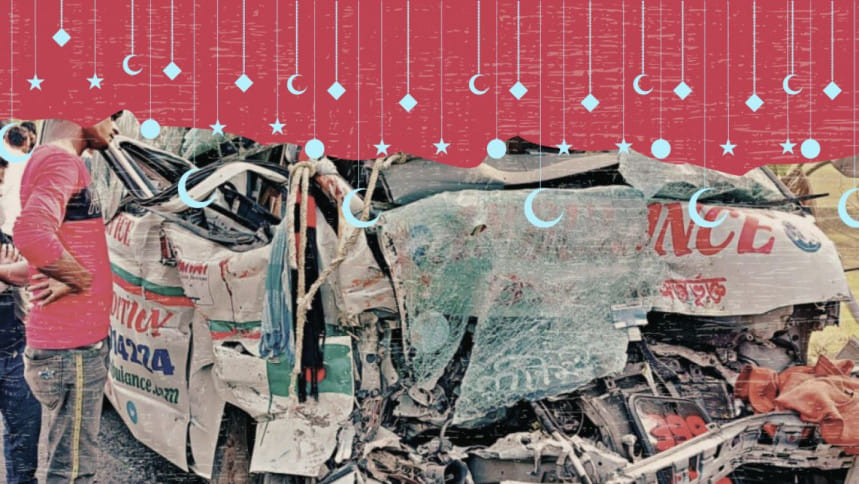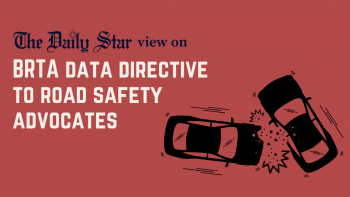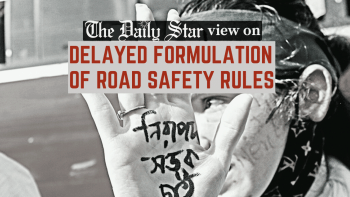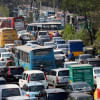Why must Eid journeys be life-threatening?

Eid vacations in Bangladesh are a time of joy and celebration with family, but it can also quickly take a turn for the worse owing to the risky journey back home. With one of the highest road accident rates globally, Bangladesh's roads are deadly and the situation only worsens during the Eid holidays.
On Thursday, April 20, three separate road accidents took place in Dinajpur, Munshiganj, and Natore districts. These accidents claimed the lives of at least nine individuals, including three members of the same family. Additionally, 20 other individuals were reported to have suffered injuries. The incidents are a stark reminder of the dangers of road accidents during Eid holidays.
The grim reality of unexpected deaths on roads is akin to a pandemic in our country. With each passing day, the severity of the situation appears to be worsening, as more and more people are losing their lives.
In January, the Bangladesh Passengers' Welfare Association released a report that showed 6,749 road accidents took place in Bangladesh in 2022, leading to the devastating loss of 9,951 lives and injuring 12,356 others. What is even more alarming is that the number of road accidents increased by 18.89% and fatalities by 27.43% in 2022 compared to 2021.
The month of March this year saw a total of 415 lives lost and 688 individuals injured in road accidents, as reported by the Bangladesh Road Transport Authority. The frequency of such incidents is especially concerning during festive occasions such as Eid.
Looking back, the deaths of two students in 2018, caused by an unlicensed driver driving recklessly, triggered nationwide protests led by school and college students. The protests demanded safety on roads, including stricter enforcement of traffic rules and regulations and addressing other irregularities on roads and highways. However, despite the government's promises to bring discipline on the streets, little change has been seen in the years since.
The budget for communication infrastructure has been raised annually over the past few decades. According to the proposed national budget for 2022-23, the transport and communication sector will receive Tk 81,518 crore, an increase from Tk 72,029 crore allocated in the current financial year 2021-2022, as announced by the finance minister.
Despite significant spending, corruption within responsible departments has left the communication infrastructure sector in shambles. Many roads and highways in the country have been poorly constructed at exorbitant costs by politically backed contractors with no accountability. As a result, Bangladesh ranked one of the worst in Asia for road communication infrastructure.
The corrupt actions of some officials of Bangladesh Road Transport Authority (BRTA) also adds to the miseries. According to recent reports by Transparency International Bangladesh (TIB), the BRTA is one of the most corrupt agencies in the country. Vehicle owners and drivers are required to pay for services such as vehicle registration, route permits, transfer of ownership, and issuance of driving licenses. Shockingly, around 61 percent of drivers obtain their driving licenses without undergoing driving tests. They simply pay a bribe to BRTA personnel or brokers for the paperwork.
The corruption that allows untrained drivers and unfit vehicles to operate on the roads contributes significantly to the increasing rate of accidents. Additionally, the lack of awareness of traffic rules among drivers, their lack of proficiency, and the poor state of vehicles on the roads all play a role. This situation is exacerbated by the reckless and indifferent behaviour of commercial vehicle owners and transport workers, who are influenced by politics, corruption, mismanagement, and poor policies. As a result, the chaos on the roads continues, and middle- and low-income people who rely on public transport suffer endlessly.
While accidents can never be completely eliminated, they should be the exception, not the norm.
We should also consider the impact of these unexpected deaths on the surviving family members. The emotional and financial toll is immeasurable, and the trauma is long-lasting. It is not just loss of a loved one, but also a loss of dreams, and aspirations that can never be reclaimed. Unless the government takes decisive action to address these issues, innocent lives will continue to be lost on our dangerous roads.
As Bangladesh looks to take the next step in its development journey, citizens have the right to expect safe roads. Authorities must ensure that people can enjoy the festivities of Eid, without the fear of losing their lives in the mad rush to get home. While accidents can never be completely eliminated, they should be the exception, not the norm. As the holidays come to an end and people slowly start returning to the capital, let us all hope that we do not have to read more about fatal accidents.
Md Kawsar Uddin is associate professor and coordinator at the Department of English and Modern Languages of International University of Business Agriculture and Technology (IUBAT).


 For all latest news, follow The Daily Star's Google News channel.
For all latest news, follow The Daily Star's Google News channel. 












Comments